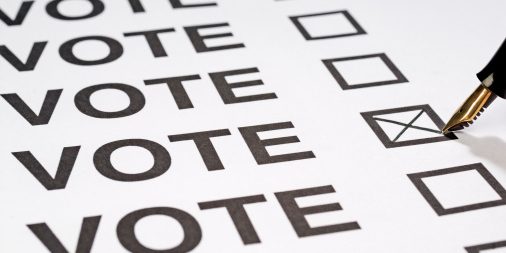As of May 4, 2021, the Alabama State Legislature has referred five statewide ballot measures to the 2022 ballot. One measure will be on the May 24 ballot. Four measures will be on the Nov. 8 ballot. The legislature unanimously approved four of the amendments. The other amendment, which would ban election and voting changes for six months before a general election, was passed largely along party lines with most Republicans in favor and most Democrats opposed.
In Alabama, both chambers of the legislature must approve proposed constitutional amendments by a 60% vote in one session to refer them to the voters.
May 24, 2022:
- House Bill 565 would amend the state constitution to authorize $85 million in bonds for improvement, renovation, acquisition, construction, and maintenance of state parks managed by the Department of Conservation and Natural Resources and historical sites managed by the Alabama Historical Commission, excluding the Confederate Memorial Park in Marbury. The measure was passed by a vote of 29-0 in the Senate and 98-0 in the House.
November 8, 2022:
- House Bill 388 would require that any legislation changing the conduct of a general election must be implemented at least six months before the next affected general election. It was passed in the House by a vote of 75-24 and in the Senate by a vote of 25-4. In the House 74 Republicans and one Democrat were in favor of the amendment, and 24 Democrats were opposed. In the Senate, 24 Republicans and one Democrata were in favor, and two Republicans and two Democrats were opposed.
- Senate Bill 68 would remove orphans’ business from the jurisdiction of county probate courts. County probate courts would continue to be responsible for adoptions, guardianships, and granting letters of testamentary. It was passed in the Senate by a vote of 28-0 and in the House by a vote of 90-0.
- House Bill 131 would amend the Alabama Constitution to provide that the legislature may enumerate offenses for which bail may be denied. The measure is referred to as Aniah’s Law. The legislature also passed House Bill 130, which would take effect if the amendment is approved. House Bill 130 enumerates offenses for which bail may be denied by a court, including murder, kidnapping, rape, assault, and more. For individuals charged with listed offenses under the bill, bail could be denied “if the prosecuting attorney proves by clear and convincing evidence that no condition or combination of conditions of release will reasonably ensure the defendant’s appearance in court or protect the safety of the community or any person, may deny a defendant’s bail.” It was passed by a vote of 30-0 in the Senate and 92-0 in the House.
- House Bill 178 would allow certain cities that were previously authorized to pass a special property tax to pay for bonds or other forms of debt to fund capital improvements to instead use the tax revenue to pay for capital improvements directly. It would also validate any past use of such property tax revenue directly for capital improvements. It was passed by a vote of 98-0 in the House and 29-0 in the Senate.
A total of 88 measures appeared on the statewide ballot in Alabama from 2000 to 2020. Sixty-nine were approved (78.41%), and 22 were defeated (21.59%). All but three measures were on even-year ballots. From 2000 to 2020, the number of measures on statewide ballots during even-numbered years ranged from four to 15.


